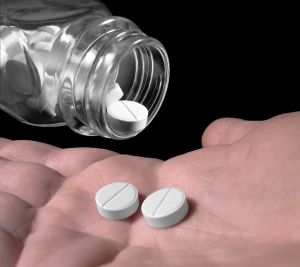The TGA decided to cancel the products known by the brand names Capadex, Di-Gesic, Doloxene and Paradex following an extensive review of information about the medicines’ safety and efficacy. The decision was to take effect from 1 March 2012.
However, the manufacturer of two of these brands of medicine appealed to the Administrative Appeals Tribunal (AAT), which decided that Di-Gesic and Doloxene should remain available for the time being — at least until the final AAT hearing has taken place, or until further order of the AAT.
There is no appeal in relation to Capadex and Paradex, so these will no longer be available from 1 March.
NPS CEO Dr Lynn Weekes says that while Di-Gesic and Doloxene will remain on the market for the time being, the advice remains the same for all these medicines — that the potential harms outweigh the possible benefits.
The main risks associated with medicines containing dextropropoxyphene are to do with adverse effects on the electrical activity of the heart, including serious heart rhythm problems. These adverse effects on the heart can occur even at recommended doses. However people taking high doses of these medicines, the elderly and people with kidney problems are particularly at risk.
Evidence shows that the three medicines containing a combination of paracetamol and dextropropoxyphene (Capadex, Di-Gesic and Paradex) are no more effective than taking paracetamol alone.
"Given the limited benefit of pain relievers containing dextropropoxyphene, the risks associated with their use, and the fact that we also know dextropropoxyphene can cause dependency, NPS agrees with the TGA’s decision to cancel the four pain relief medicines containing this active ingredient," says Dr Weekes.
Dr Weekes says that anyone who had been taking any of the medicines containing dextropropoxyphene —Capadex, Di-Gesic, Doloxene or Paradex —should speak to their doctor about alternative pain relief medicines.
"But importantly, if you have been taking these medicines regularly for chronic pain, talk to your doctor about how to gradually change to a new medicine. Suddenly stopping these medicines is not recommended and can cause a range of unpleasant withdrawal symptoms," says Dr Weekes.
"Your doctor is best placed to work with you to decide which alternative pain medicine suits your situation."
Top 6 medicinewise questions for people managing pain
It’s important you speak to your doctor about what is right for you. Our top 6 questions to ask include:
- Which pain relief medicine is best for my condition?
- What is the active ingredient in this pain relief medicine?
- Are there any pain relief medicines I should not take?
- How often should I take this medicine?
- Is there anything else I can do to manage my pain?
- How regularly should my medicines and pain management plan be reviewed?
NPS has resources for people who take pain relief medicines




